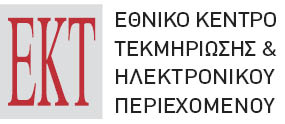Βασική προϋπόθεση για την ύπαρξη της Εκκλησίας είναι αυτή να είναι μία. Να συνάζει όλους και όλα και να τα ενώνει με το Θεό, στον Οποίο καθίσταται η αιώνια ύπαρξη όλης της κτίσης. Ξεκινώντας από αυτήν την προϋπόθεση αυτή η εργασία ερευνά τι γίνεται όταν αυτό το προαπαιτούμενο δεν εκπληρώνεται, και παράλληλα ερευνά ποιοί είναι οι λόγοι που τόσο δύσκολα επιτυγχάνεται η ενότητα της Εκκλησίας. Προσπαθεί να σημειώ¬σει τα μεγαλύτερα και τα πιο σημαντικά προβλήματα που υφίστανται ανάμεσα στους διαιρημένους Χριστιανούς. Παρ΄ όλα που το θέμα πρωτίστως είναι εκκλησιολογικό, αναφέρονται τα τριαδολογικά και χριστολογικά προβλήματα επειδή η εκκλησιολογία είναι άρρηκτα συνδεδεμένη με την τριαδολογία, τη χριστολογία και την πνευματολογία. Από τα μεγαλύτερα προβλήματα και τις διαφορετικές προσεγγίσεις στη θεολογία της Ανατολής και της Δύσης, οπωσδήποτε το σημαντικότερο αναφέρεται στο πού έγκειται η αιτία της υπάρξεως του Θεού, στον Πατέρα, όπως πρεσβεύει η Ορθόδοξη Εκκλησία ή στη Θεία ουσία όπως πιστεύουν οι Δυτικές Εκκλησίες. Μη διάκριση μεταξύ της θεολογίας και οικονομίας από την οποία απευθείας προέρχεται και το Filioque, μη αποδοχή της άκτιστης Θείας χάριτος, υιοθέτηση της διδασκαλίας περί του προορισμού, ή αντίθετα, σχεδόν νεστοριανίζουσες στάσεις ότι ο άνθρωπος σώζεται μόνο με τις δυνάμεις του, χωρίς τη χάρη του Θεού, είναι μόνο μερικά από τα μεγαλύτερα προβλήματα που υφίστανται. Από τα καθαρά εκκλησιολογικά προβλήματα ξεχωρίζονται τα εξής: τονισμός της ιστορικής υπάρξεως της Εκκλησίας και παραμέληση της εσχατολογικής, υπερτονισμός του ρόλου του «ενός» και παραμέληση των «πολλών», θέμα που άμεσα άπτεται με το ερώτημα του πρωτείου στη Ρωμαιοκαθολική Εκκλησία. Η ερώτηση της αυθεντίας του αλάθητου, στον Πάπα ή στην Αγία Γραφή, η ερώτηση της σχέσεως μεταξύ της τοπικής και οικουμενικής Εκκλησίας, το ρόλο του Επισκόπου στην Εκκλησίας, αυτά είναι τα καίρια και μεγαλύτερα προβλήματα μεταξύ της Ανατολικής Ορθόδοξης και Δυτικές Εκκλησίες, τα οποία μέχρι σήμερα μένουν άλυτα. Στην ερώτηση, αν υπάρχει ανάγκη να συνεχίσουν οι διάλογοι που διεξάγονται για την ενότητα της Εκκλησίας όταν οι θεολογικές διαφορές όχι μόνο παραμένουν, αλλά δεν είναι καθόλου αμελητέες, η απάντηση της εργασίας αυτής είναι ότι πάνω απ΄ όλα, στο πρόβλημα της ενότητας της Εκκλησίας δεν υπάρχει εναλλακτική λύση, και ο μοναδικός τρόπος να επιτευχτεί η ενότητα αυτή είναι μέσω του διαλόγου.
The basic precondition for the existence of the Church is for Her to be one. To gather everyone and everything and to unite them with God, in Whom is the eternal existence of all creation. Commencing from this premise, this work studies what occurs when this prerequisite is not fulfilled, and, in parallel, it researches for what reasons the unity of the Church is so difficult to achieve. It attempts to note the greatest and the most significant problems that exist among the divided Christians. Yet, despite this matter is primarily ecclesiological, it addresses the triadological and christological problems, because the ecclesiology is inextricably conjoined with the triadology, the christology and the pneumatology. Among the biggest problems and differences in the approaches in the theology of the East and the West, certainly the most important one refers to where lies the cause of God’s existence, in the Father, as advocated by the Orthodox Church, or in the Divine essence, as the Western Churches believe. Not distinguishing between theology and economy out of what also the Filioque directly derives, not accepting the uncreated divine grace, adoption of the teaching on the predestination, or, the opposite, the almost nestorian standpoint that man is saved solely by his own powers, without the grace of God, are only a few of the biggest problems that exist. Out of the purely ecclesiological problems, the ones that are standing out are the following: the emphasis on the historical existence of the Church and the neglect of the eschatological, the exaggerated emphasis of the role of the "one" and the neglect of the "many", an issue that directly affects the question of the primacy of the Roman Catholic Church. The question of the infallibility of the authority of the Pope or of the Holy Scripture, the question of the relation between the local and the universal Church, the role of the Bishop in the Church – these are the most vital issues and the most significant problems between the Eastern Orthodox and the Western Churches, which remain unresolved until this day. Upon the question if there is a need to continue with the dialogues which are conducted for the unity of the Church, in circumstances when the theological differences not only persist, but they are also not at all negligible, the answer that this work gives is that above all, the unity of the Church is an issue for which no alternative exists, and the only means to achieve this unity is through dialogue.
 National Documentation Centre (EKT)
National Documentation Centre (EKT)

